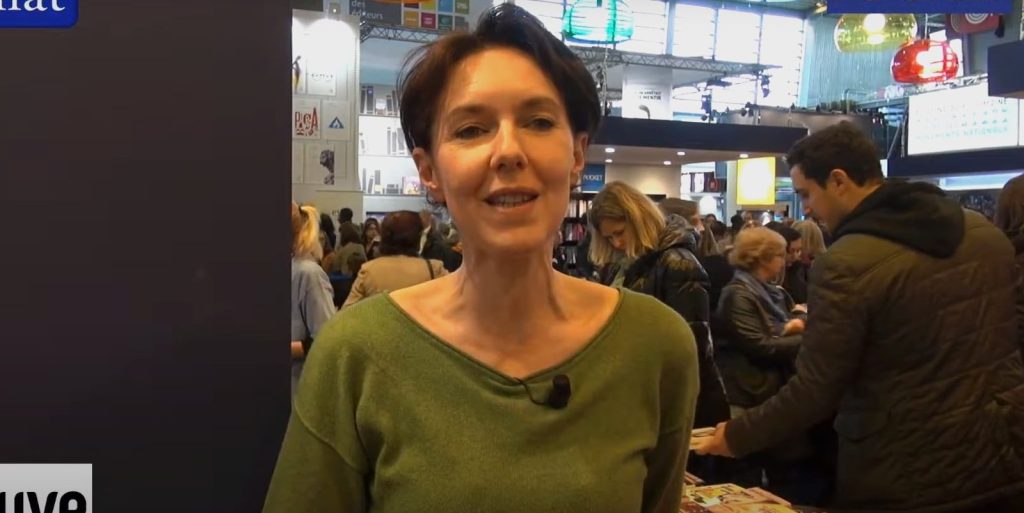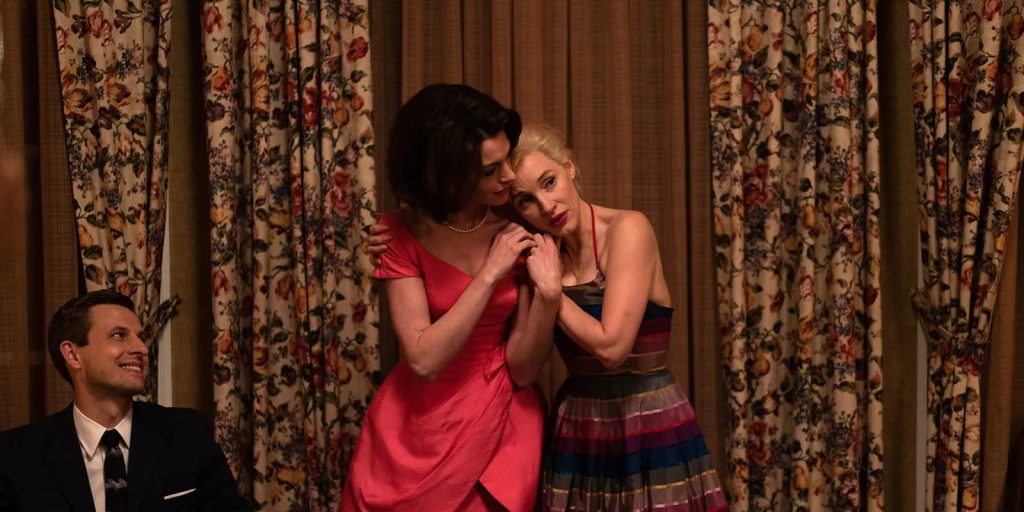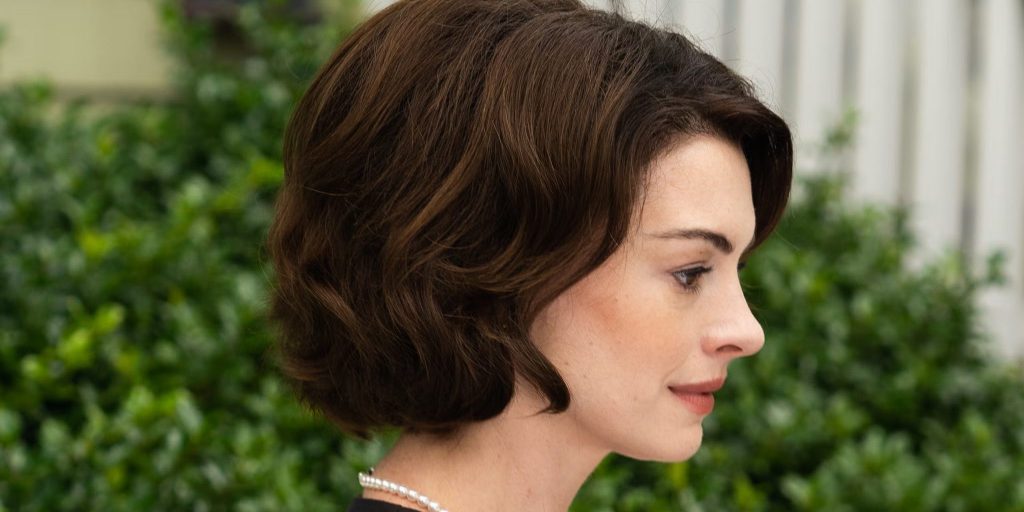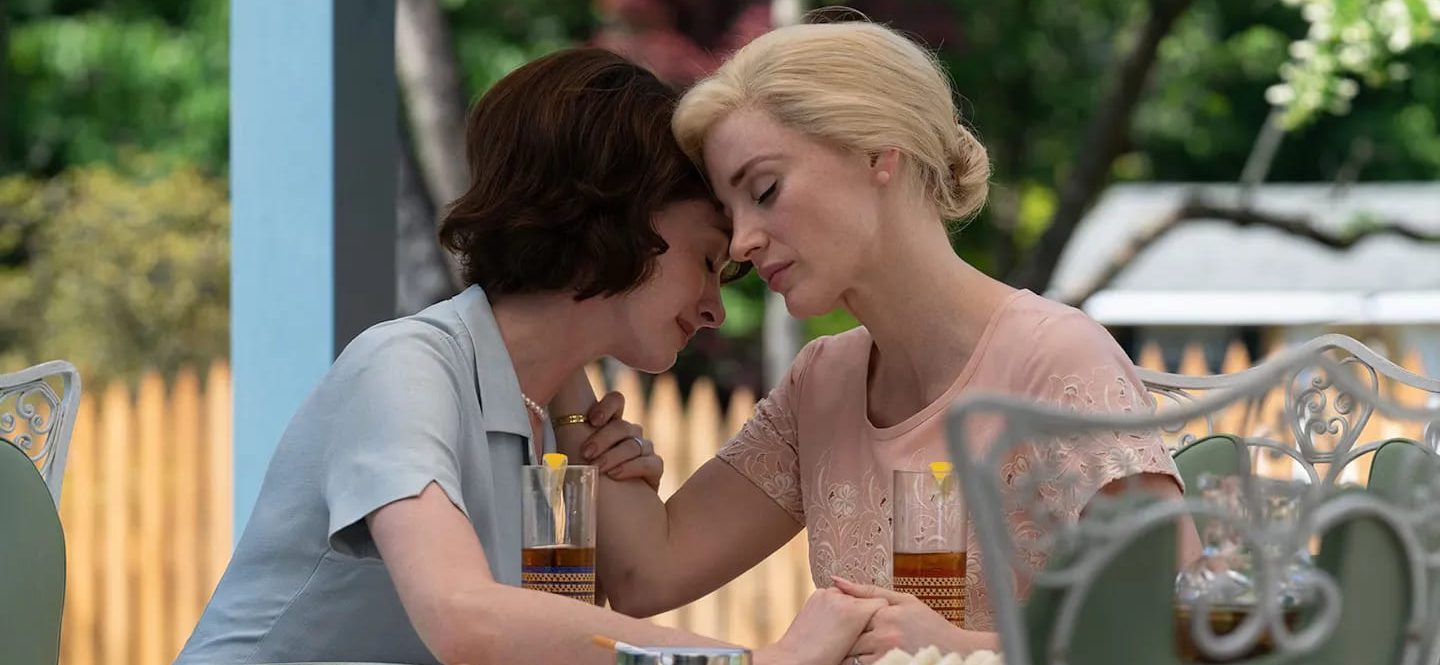Set in the 1960s, the psychological thriller ‘Mothers’ Instinct’ tells the story of two mothers, Alice and Céline, who are friendly neighbors in a suburban community. Their children are best friends at school and often hang out together. However, when Céline’s son, Max, tragically passes away due to a fall from the upstairs balcony, Alice is riddled with guilt due to her part in the whole incident. Subsequently, the bond between the two mothers is fractured as Céline starts avoiding Alice. Meanwhile, Alice’s son, Theo, forms an unlikely relationship with the grieving mother of his best friend.
In his directorial debut, Benoît Delhomme depicts a riveting tale of a suburban thriller where the peace and tranquility of a leisurely existence is morphed into an increasingly suspenseful narrative that balances itself on a knife edge. ‘Mothers’ Instinct’ captures the unique aura of the ’60s and the mindset it engendered in people as suspicion and doubts abound in a small locality of well-to-do people. It explores themes of loss, grief, and tragedy while also probing into the paranoia that is all too familiar after an accident rocks a family’s mundane existence. For those reasons, the film’s genesis becomes a worthwhile topic of discussion as we attempt to determine whether it is based on a true story.
Mothers’ Instinct is a Remake Of a French-Language Film Adapted From a Novel
‘Mothers’ Instinct’ is a fictional narrative conceived by Sarah Conradt, who penned the screenplay under Benoît Delhomme’s direction. It is based on the 2018 French-language film by Olivier Masset-Depasse, which in turn was adapted from the 2012 eponymous novel by Barbara Abel, titled ‘Derrière la Haine’ in French. Initially, the film was intended to be directed by Masset-Depasse, who wanted to remake his original film into an English-language remake. However, three days before production, he dropped out, allowing Delhomme to step in and take over direction duties. The film is largely faithful to the main narrative in the literary source material with only minor deviations and adjustments, the most prominent of which is the change in setting.

In the original novel, the story takes place in an area outside Paris in recent times. The film, on the other hand, takes place in a suburban American locale during the 1960s. Character names are also changed as Alice and Céline are known as Laetitia and Tiphaine in the book. The friendship between the two characters is fleshed out a little more in the source material, while the movie picks up from a point where the two mothers have already formed a sisterly bond. A more eye-catching difference is in the tragedy at the center of the narrative, which is Max’s death. The incident takes place slightly differently than the one depicted in the film. However, its overall contribution to the plot remains exactly the same.
Hitchcockian Filmmaking Inspires Mothers’ Instinct
While ‘Mothers’ Instinct’ derives most of its exhilarating tension from its pre-existing source material, the director, Benoît Delhomme, took a more personal approach to the narrative structure. He wanted to emphasize the anxiety and suspense rooted in the interactions between the two women who start as friends, but their relationship quickly devolves into a fractured bond. The director found a connection through the central tragedy of the film’s narration, comparing it with his anxieties as a father. He was intrigued by the psychological effects that the loss of a child would incur on the central leads, forcing them to deal with their own traumas at a raw, personal level.

The filmmaker revealed that owing to the tension within the plot, he could play with the subjective and objective narration of events, seeding doubt in the audience as they watched the paranoia-fueled degradation of a character. In an interview, he explained, “Because of the thriller structure of the film, exploring this one character, you don’t know if it’s something she is really experiencing, if things are true or invented. And it’s a kind of Hitchcock thing, where you never know if you see the truth or not. And is [Alice] inventing something? Is it only inside her head? I thought, I know how to deal with that, because I feel I’m an anxious person in life.” The idea of inspiring terror through an unreliable narrator is a tried and tested method that adds a sense of morbid dread to ‘Mothers’ Instinct.’
The Narrative Delves Into the Societal Issues Revolving Around Motherhood in the ’60s
One of the key aspects of Benoît Delhomme’s directorial is the sense of symmetry engulfing the two mothers in the story. The director attributed it to a sense of balance between their existence – two houses, two families, and two kids. However, once tragedy strikes, that balance is ripped apart, leading to a hurricane of events to be set in motion. The people who suffer the most from this new environment are Alice and Céline, whose supportive bond is torn asunder, leaving them both grappling for dear life. Consequently, themes of motherhood, grief, and anxiety play a pivotal role in illustrating the core message at the heart of the narrative, where the once tranquil life of two families turns into a wasteland of nightmares.

Jessica Chastain, who plays Alice, told Glamour Magazine, “For my character, really, it was an exploration not only in motherhood, but of anxiety. When we meet her, we realise she’s been committed before. She faces a lot of restrictions and pushback against the woman she longs to be.” Anne Hathaway, who stars alongside Chastain as Céline, also chimed in on her character’s driving factor, saying, “One of the things that broke my character’s heart was how stigmatised she was in her grief, and that stigma isolated her and just made everything worse. Something that I think the movie does do a good job of is showing that – especially during this time – women were so isolated, and they had such prescribed identities that were based on outside notions of gender. And that’s really, really toxic.”
Naturally, the culmination of an era of repressed values and the anxiety of a suburban abode thick with doubts about the neighbors adds to the unique thriller vibes of ‘Mothers’ Instinct.’ The film conforms to the reality of familial situations during a specific period in the past while also offering a modern suspense film that takes into account the evolution of Hitchcockian methodology, which imbues the narrative with a sense of rising but realistic terror.
Read More: Best Thriller Movies on Netflix


You must be logged in to post a comment.